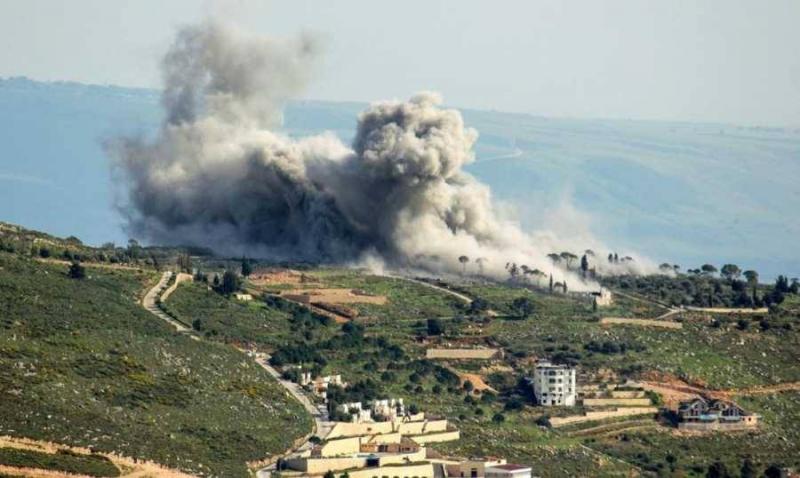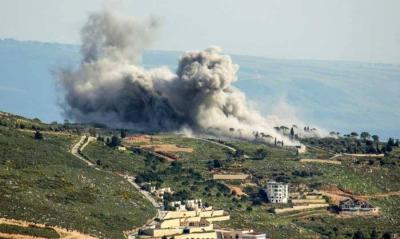After meeting with his French counterpart, Stéphane Siggourne, a few days ago, Israeli Foreign Minister Israel Katz issued a threat to Lebanon, marking a first of its kind. He stated: If Hezbollah does not withdraw, we will fight them throughout Lebanon, and we will occupy large areas of southern Lebanon to establish a security zone where we will remain for a long time. This position elevates the level of the Israeli threat to a third degree: from the threat of limited retaliation in the south (as current rules of engagement stipulate), to a threat of a comprehensive war against all of Lebanon (as in July 2006), to the threat of reoccupying large areas of the south (as was the case before 2000), as reported by "Al-Jumhuriya."
Of course, it is not easy for Israel to occupy the south if it carefully considers its calculations. Tehran will vehemently reject the removal of a sphere of influence and a very strong card from its hands. If the Israelis are extremely cautious about fighting with the besieged and limited capabilities of Hamas in Gaza, their combat with Hezbollah and Iran in southern Lebanon is difficult and requires a great deal of caution. When the Israelis occupied the south before 2000, they suffered severe and costly attrition. Most likely, today, they cannot afford such an adventure.
Therefore, it is likely that the Israeli threat to reoccupy the south is a maneuver to pressure the Lebanese negotiator, via the French intermediary, to achieve the more important goal: to sever the connection between the south and Gaza, and to ease the northern front to accomplish the strategic mission in the sector, and possibly later in the West Bank.
There is no disagreement among political forces in Israel regarding the strategic goal of ensuring the future of Israel as a Jewish state. Everyone wants to achieve this goal by displacing the people of Gaza, and later the West Bank, and preventing Iran from establishing its missiles within what they consider a threat to Israel's security in southern Lebanon, Syria, Iraq, and Yemen. Therefore, these steps will be executed sequentially by the Israelis, in the coming months and years, according to priorities. They will not waste the precious opportunity available internationally with absolute American and Atlantic support, Russian and Chinese silence, and Arab fragmentation.
Thus, it is futile for Gazans to hope to prevent an incursion into Rafah and to succeed in the truce with Hamas. Netanyahu sees no objection to ensuring the release of a new batch of hostages, including Americans, even if he delays the planned operation in Rafah for a while, but he will certainly execute it. After that, perhaps the West Bank will be his next step, but it depends on timing. The Westerners are extremely keen on the stability of Jordan and its regime during this critical phase.
In any case, the Israelis aim to utilize the efforts of American mediator Amos Hochstein to ensure calm on the northern front, so they are not distracted from their battles in Palestinian territories. They want to achieve this diplomatically as a priority, but they will accomplish it by fire if necessary. But, will Iran allow the Israelis this convenient opportunity to pounce on the Palestinian interior?
Will Tehran ask Hezbollah and other allies in Iraq and Yemen to stand idle while Israel targets Hamas and eliminates its last strongholds, or will it, on the contrary, ask them to escalate and provide the necessary support to Hamas? Some believe that the Israelis prefer to postpone the large operation in Gaza until they secure guarantees on the northern borders. However, if these guarantees are not achieved, they will initiate the operation regardless. Some say that Hezbollah, which has been content with disturbances at the border for seven months, despite the majority of Gaza being under Israeli control, may not do anything more than that to support Hamas in Rafah.
Conversely, there are those who talk about another scenario that takes on a dramatic character. Iran may find itself facing a fateful confrontation with Israel, where losing is not an option. Weakening Tehran's ally in Gaza and losing him would lead to the weakening of its ally in Lebanon, sooner or later. Therefore, Iran may decide to open all fronts simultaneously, in the manner in which it responded to the Israeli strike on its consulate in Damascus, namely with barrages of rockets and drones over vast areas deep within Israel for prolonged periods, leading to the exhaustion of the Israeli defense systems and those allied with the West.
If this occurs, the region will be on the brink of a fierce multi-front and multi-party war, as Americans, Europeans, and Arabs will become involved in various forms. Lebanon will be a battleground for the fiercest regional confrontations, paying a heavy price. This is what Hezbollah seeks to avoid. Therefore, it is keeping the door open for mediators and will rely on a strategic patience approach until further notice, according to "Al-Jumhuriya."




